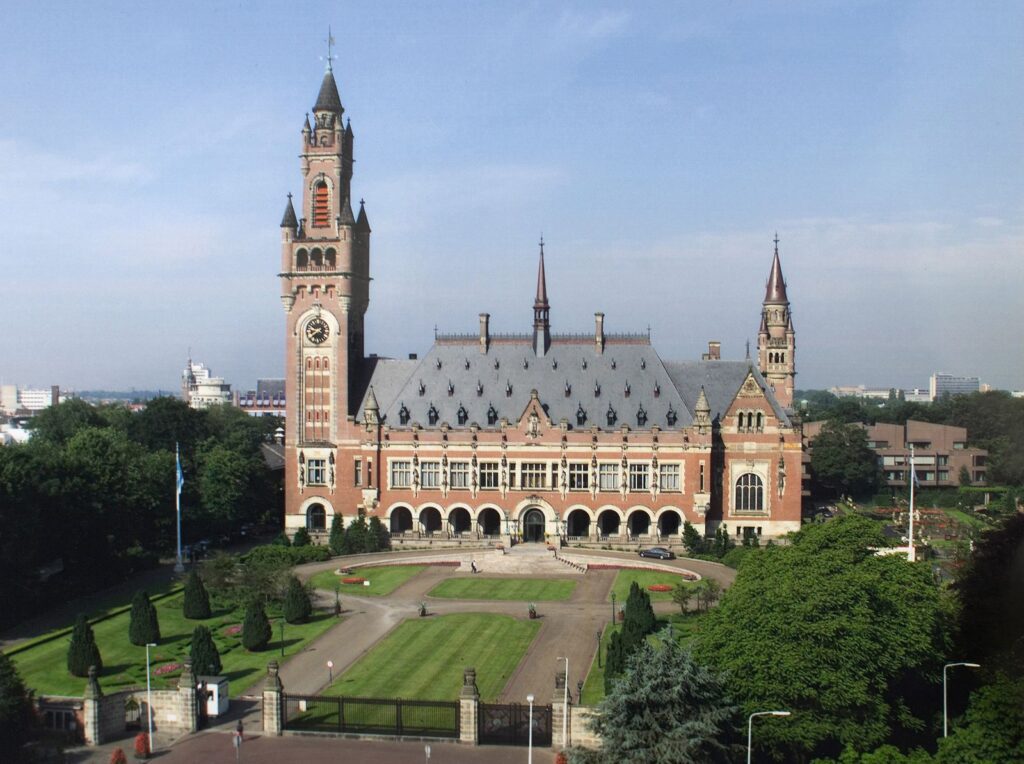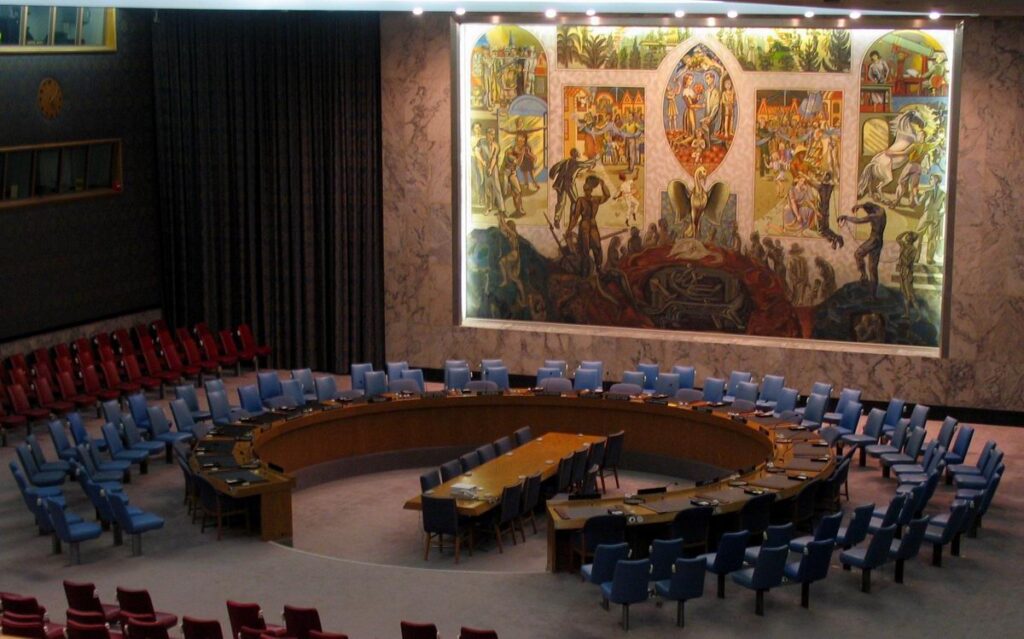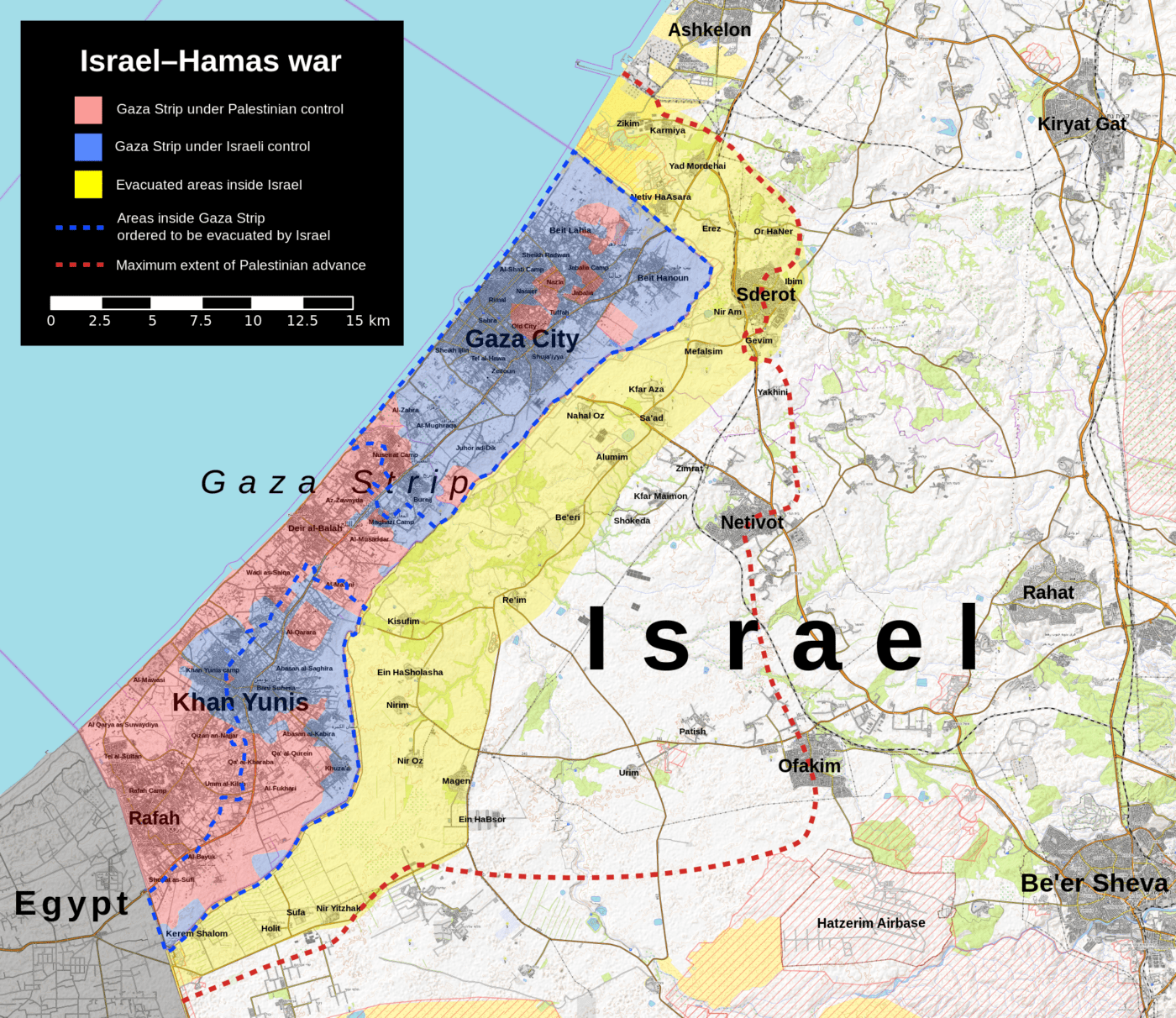On the 7th of October 2023, Hamas attacked Israel, beginning a conflict that has cost many lives of both Israeli and Palestinian civilians. In the attack, at least 1,139 people—most of which were civilians—were killed. Regardless of this unlawful act that started the war, the tensions between Palestine and Israel did not begin on October 7th. The tensions have existed for decades, and Israel has been an occupying power in Palestine for a long time. The world has been rattled by the conflict that unfolded since the attack of the 7th of October. International organisations have expressed deep concern and condemned the indiscriminate killings of civilians in the war, as the death toll continues to rise. At least 25,000 civilians in Palestine and 1,100 in Israel have been killed. The UN Security Council has attempted to pass a resolution that would demand a ceasefire, but the United States used their veto in every case.
The Case at the ICJ:
One of the central questions surrounding the heated debate of the conflict is whether or not Israel is committing genocide against the Palestinian people. In December 2023, South Africa brought a case against Israel to the International Court of Justice (ICJ) in the Hague, claiming that their actions in the Gaza Strip amount to genocide. The ICJ is the highest judicial body of the United Nations, and in this case, their decisions are binding upon the parties. In its application, South Africa requested that the Court indicate provisional measures of protection in relation to the Palestinian people. One of the requests was to order Israel to suspend its military operations in and against Gaza: in essence, a one-sided ceasefire.


South Africa is clearly not party to the conflict itself. How can they then take Israel to court? The obligation to prevent and punish genocide, in accordance with the Genocide Convention, is what lawyers call an erga omnes obligation—an obligation owed to the international community as a whole. This is also the reason why the war crimes being committed by both parties aren’t up for discussion at the Court. These are not erga omnes obligations, and as such, South Africa cannot get Israel into a courtroom based on these war crimes.
The term “genocide” is a heavy one, that is increasingly being used in the debate surrounding the conflict. What then is genocide? It is seemingly impossible to form an opinion on the question of whether a genocide is happening or not without understanding what one entails. The definition is found in the Genocide Convention’s second article and reads as follows: “(G)enocide means any of the following acts as committed with intent to destroy, in whole or in part, a national, ethnical, racial, or religious group, as such:
- Killing members of the group;
- Causing serious bodily or mental harm to members of the group;
- Deliberately inflicting on the group conditions of life calculated to bring about its physical destruction in whole or in part;
- Imposing measures intended to prevent births within the group;
- Forcibly transferring children of the group to another group.”
The integral part of this definition is found in the requirement of intent. The state committing genocide must have the intent to destroy a group. This is an extremely high threshold and something inherently difficult to prove. This means that conflicts in which war crimes are being committed every day do not amount to genocide if there is no genocidal intent. In the case against Israel, the most damning evidence are the statements made by political and military leaders in official capacity which point towards such an intent. Nonetheless, we will still have to wait a couple of years for the Court’s final ruling on whether Israel is committing genocide.
On the 26th of January, 2024, the Court ruled on the provisional measures in the case, as requested by South Africa. The following are condensed versions of the provisional measures. Israel must…
- …in relation to the Palestinians in Gaza, take all measures within its power to prevent the commission of acts prohibited in the Convention, in particular those listed in the article above;
- … ensure that its military forces do not commit any of the acts mentioned in point 1;
- … take all measures within its power to prevent and punish direct and public incitement to commit genocide;
- … take immediate and effective measures to enable the provision of humanitarian relief to Gaza;
- … take effective measures to prevent destruction of evidence relating to allegations of acts violating the Genocide Convention;
- … submit a report to the Court within one month regarding the measures it has taken to give effect to the order.
Put in fewer words, the provisional measures order Israel to stop genocidal acts and take measures to ensure that humanitarian aid is provided to civilians in Gaza. These provisional measures are legally binding for Israel. However, despite their legally binding nature, there is no way for the Court to enforce its ruling. It has been reported that humanitarian aid in small portions is being let into Gaza. Protesters have at times blocked the way, arguing that the humanitarian aid does not go to the Palestinian people, but to Hamas. This perfectly exemplifies why the international legal system is referred to as a “toothless tiger”, where state sovereignty becomes the weakness of international law when decisions that are legally binding cannot be enforced. Even in 2022, when the ICJ ordered Russia to “immediately suspend military operations” in Ukraine, the order was ignored. What, then, is the point of having the ICJ or taking Israel to court? Even though its decisions cannot be enforced, rulings from the ICJ have a huge impact politically and diplomatically. When the UN Security Council decides upon resolutions to pass, that can bring about economic sanctions or embargoes against a state, decisions from the ICJ can be used as grounds for the resolution.


Another interesting aspect of the provisional measures that the Court indicated is their silence on the South African request for a ceasefire. This was not mentioned in the provisional measures, without any explanation as to why. A speculation that has been discussed is that it would be against the principles of international law to oblige Israel to a ceasefire without placing the same order on Hamas. This would tie the hands of Israel, making their ability to exercise their inherent right to self-defence impossible, but not Hamas’s.
What happens next?
The question naturally arises: what has happened since the provisional measures? The fighting has not slowed down—both parties continue to bomb one another and the civilian death toll continues to rise. In the week after the ICJ’s ruling, an estimated minimum of 1,000 Palestinians were killed. Israel has argued that it has done its best to minimise harm to civilians, but the Court has found their actions to minimise harm insufficient. This means that Israel cannot claim that they are abiding by their obligations, but must do more. The humanitarian conditions that are detailed in the South African application and reports—including such of alleged deliberate starvation—have been further exacerbated since the suspension of funding to UNRWA, a UN agency accused of collaborating with Hamas. It has also been reported that Israel has commenced an offensive in Rafah, where many of the refugees from northern Gaza have fled. Rafah also happens to be the main entry point of humanitarian aid from Egypt, and continued reports show that the flow of humanitarian aid in general continues to be hindered.
Israel has made it clear that attacks on Palestine will not cease until they have eliminated Hamas in its entirety. Whilst it remains to be seen how the Court will rule in the case, provisional measures are a step forward. Agnès Callamard—Secretary General of Amnesty International—stated that the provisional measures are a “reminder of the crucial role of international law in preventing genocide and protecting all victims of atrocity crimes”.
By Roya Juhlin-Dannfelt
March 5, 2024








